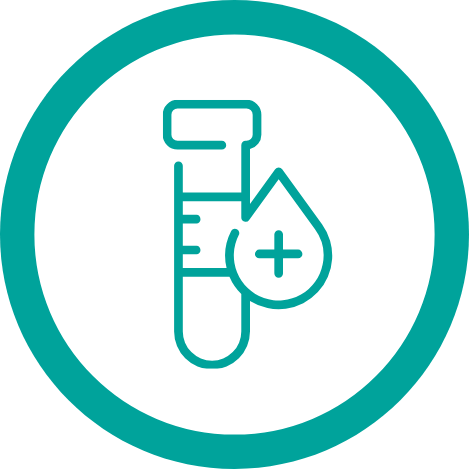Does it matter if I know I'm in menopause or not?
How do I know if I’m in menopause if I’m on HRT — and does it matter?
This is a really common and valid question, but it depends on so many things. Let's look at some basics!
🌙 First — what is menopause?
Menopause is officially defined as 12 months with no period, due to the ovaries stopping ovulation. But when you're on HRT (especially estrogen and progesterone), it can be trickier to tell if you’re menopausal — because HRT can change bleeding patterns and improve symptoms like hot flushes, making it harder to rely on those signs alone.
⚖️ But HRT is a low dose — so it doesn’t fully “mask” things
- Unlike the high hormone levels of your natural cycle, HRT uses much lower doses — especially during perimenopause when your own estrogen can fluctuate wildly.
- That’s why most people in perimenopause can’t tolerate continuous HRT (estrogen + daily progesterone) without breakthrough bleeding — their natural hormones are still too up and down.
So, if someone is taking continuous combined HRT and not bleeding, it often suggests that their own hormones have quietened down — in other words, they’re likely in or through menopause.
🧪 Can we do blood tests?
- Sometimes — but it depends on the situation. While HRT contains much lower doses of hormones than your body would produce naturally, it can still influence blood test results (especially estrogen levels).
- However, FSH (follicle-stimulating hormone) levels can still be useful — particularly if measured a couple of times, and if they’re consistently high, it may suggest menopause.
- That said, after age 45, we usually don’t need to test hormone levels to diagnose menopause — it’s generally based on age, symptoms, and clinical judgment.
🔒 What about contraception?
This is one situation where it does matter.
- HRT is not a contraceptive, and if you're under 50, you’re advised to continue using contraception until 2 years after your last natural period. If you’re 50 or older, it’s 1 year.
- If we don’t know when that last period was (because of HRT), and contraception matters to you, then a blood test or switching to a form of HRT that acts as contraception (like the Mirena) may be worth discussing.
💊 Does it change how long I need HRT for?
- Not really. There’s no set time limit for HRT. The focus is on how you're feeling, and the benefits for your emotional wellbeing, bone health, brain, and heart — particularly if you started HRT in your 40s.
- If you feel better on HRT, and there are no medical reasons to stop, you can usually continue.
🌊 What changes after menopause? Some people notice a shift once they’re through menopause:
- They may find their symptoms settle into a more stable pattern, with less fluctuation.
- Others didn’t notice much hormonal variability in perimenopause to begin with — for them, it may feel like more of a gradual or uneventful transition.
- It’s helpful to recognise that there’s no one “right” way to experience it — just what makes sense for your body.
💡 Bottom line:
- You’re doing the right thing by being on HRT if it’s helping you.
- Whether you’ve officially “crossed the line” into menopause or not doesn’t change your care plan right now.
- You can always reassess over time, but there’s no pressure to diagnose menopause for its own sake — especially if your symptoms are well managed and you feel informed.
Follicle Stimulating Hormone (FSH)
FSH is a hormone produced by the pituitary gland in the brain. Its job is to stimulate the ovaries to grow and mature follicles (which contain eggs) and produce estrogen. In the lead-up to menopause, as the ovaries start to slow down and become less responsive, estrogen levels drop — and in response, the brain increases FSH in an attempt to get the ovaries to work harder. So, a consistently high FSH level (especially above 25 IU/L) can be a sign that the ovaries are no longer functioning regularly, which supports a diagnosis of menopause or perimenopause. However, FSH can fluctuate wildly during perimenopause, and it’s influenced by things like the time of the cycle or if someone is on HRT — so it’s not always a reliable standalone test.
High FSH before 40yo
If your FSH is raised and you're under 40, it can be a sign that your ovaries are not working as they should — a condition called premature ovarian insufficiency (POI). This means the ovaries are slowing down or have stopped producing hormones and eggs much earlier than expected. POI isn’t the same as early menopause (which is usually defined as menopause between 40–45); in POI, ovarian function can still be intermittent or unpredictable. A consistently elevated FSH (usually over 25 IU/L on at least two occasions, a few weeks apart) under age 40 should be taken seriously. It often prompts further investigation and typically means hormone replacement therapy (HRT) is recommended to protect long-term health — including bone, brain, and heart health — and to replace what the ovaries would naturally be doing if functioning normally.



